A non-verbal solo play will feature sonic experiments with water that shed light on the timeless bond humans share with the resource
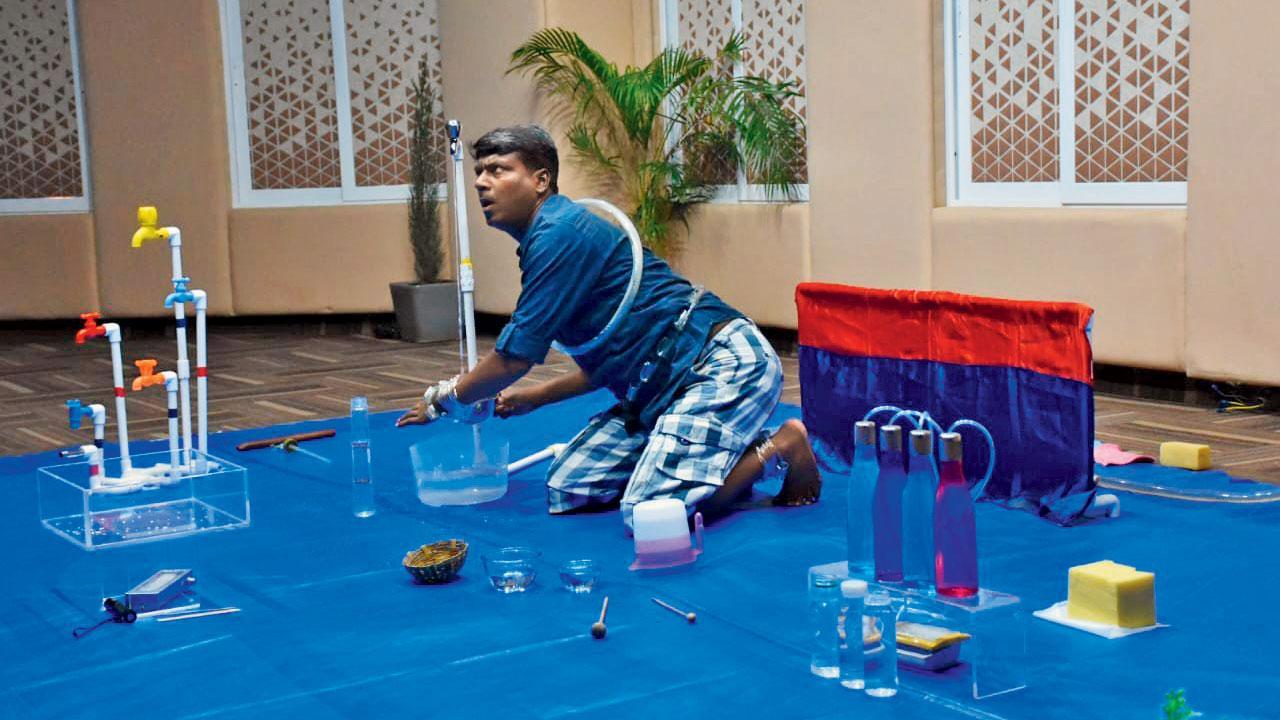
Dhanendra Kawade uses the sounds of water hitting the surfaces of different vessels to produce music
Yesterday, when Dhanendra Kawade packed his bags to leave Balaghat (in Madhya Pradesh) for Mumbai, his travel kit contained an unusual assortment. Water taps — half a dozen of them — alongside pipes, tubes and tools. Kawade, a familiar backstage name in Hindi theatre circles, isn’t in town to add to the ongoing slew of never-ending renovations. These plumbing supplies are props for the theatre maker and set designer’s upcoming non-verbal solo play, Nal Jal.
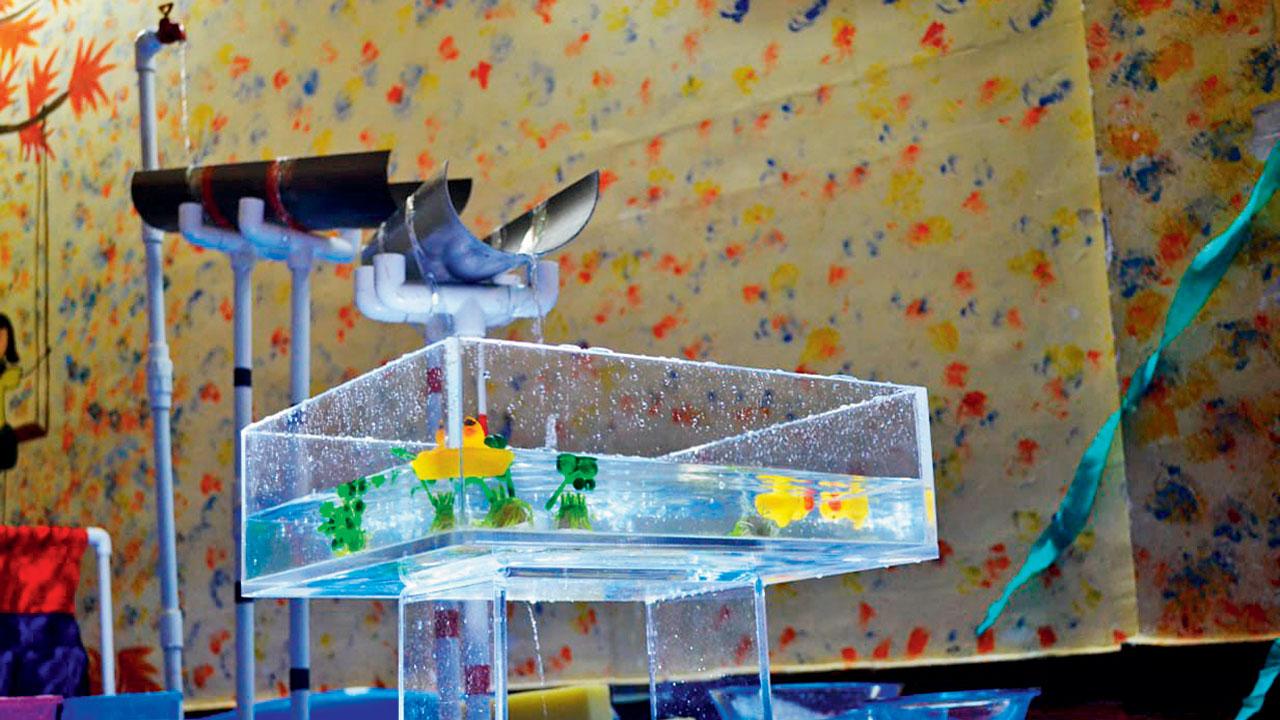
A glass tank filled with water and miniature rubber ducks acts as a visual cue for the audiences to revisit memories from their childhoods involving water
ADVERTISEMENT
A quick glance through the title and synopsis of the play, and it would seem like Kawade is here to teach city dwellers a classic lesson in water conservation. Kawade insists otherwise. He elaborates, “Water conservation cannot be understood without first rediscovering the bond we share with water. The fact that we have commodified the resource to an extent where we are bottling it to sell it, speaks volumes about how disconnected we are. The play is a hands-on exploration of a forgotten bond. What the experience subsequently sparks in you, is secondary.”
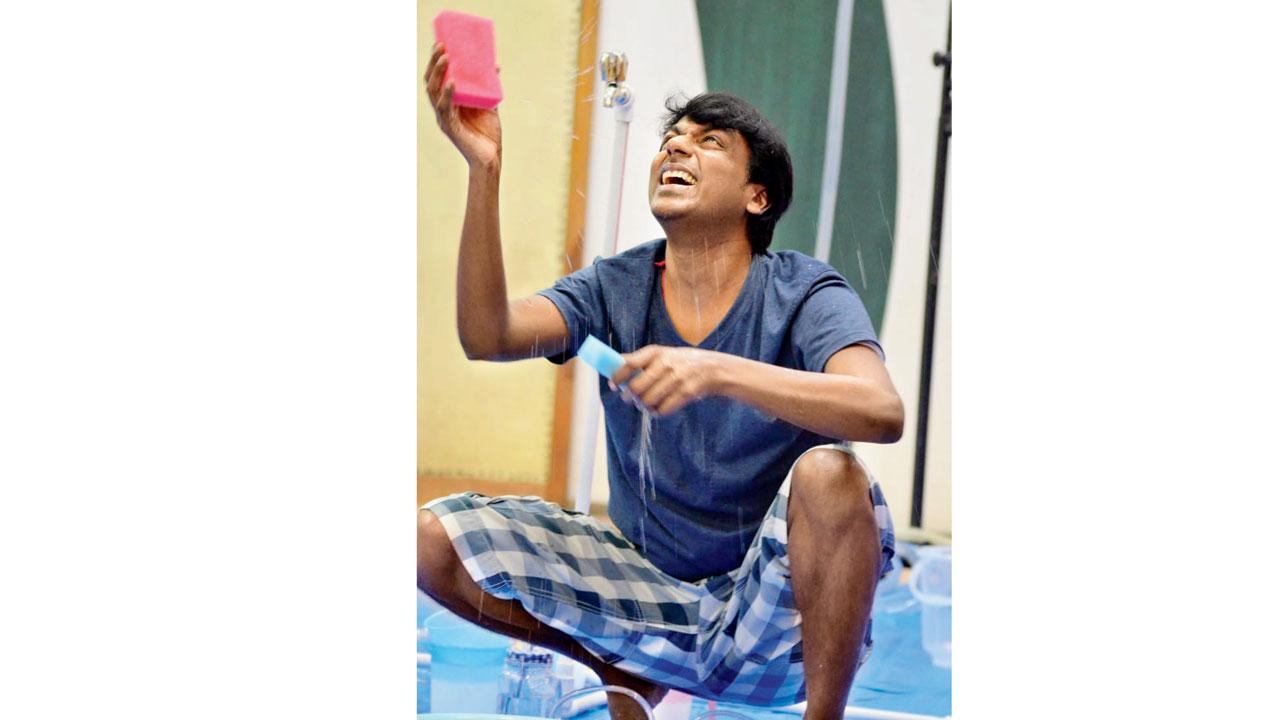
Kawade plays with water in the opening scene of the play
Kawade’s novel idea is backed by his peculiar methodology that blurs the line between a theatre stage and a science experiment in the backyard. The backbone of the stage set-up that the designer conceptualised and built himself, are taps of varying heights, and vessels such as mugs, bottles, and bowls; all spread across a blue carpet made of plastic. As the play unfolds, the artiste, who plays the role of a young man scouring for water, fills them, one at a time. A unique sound, in harmony with a pre-recorded background score, fills the room every time a stream of water hits the surface of a vessel. “Each of these three-minute-long pieces of sound evoke memories of our everyday interactions with water, and the inherent music in it that we tend to overlook,” reveals Kawade.
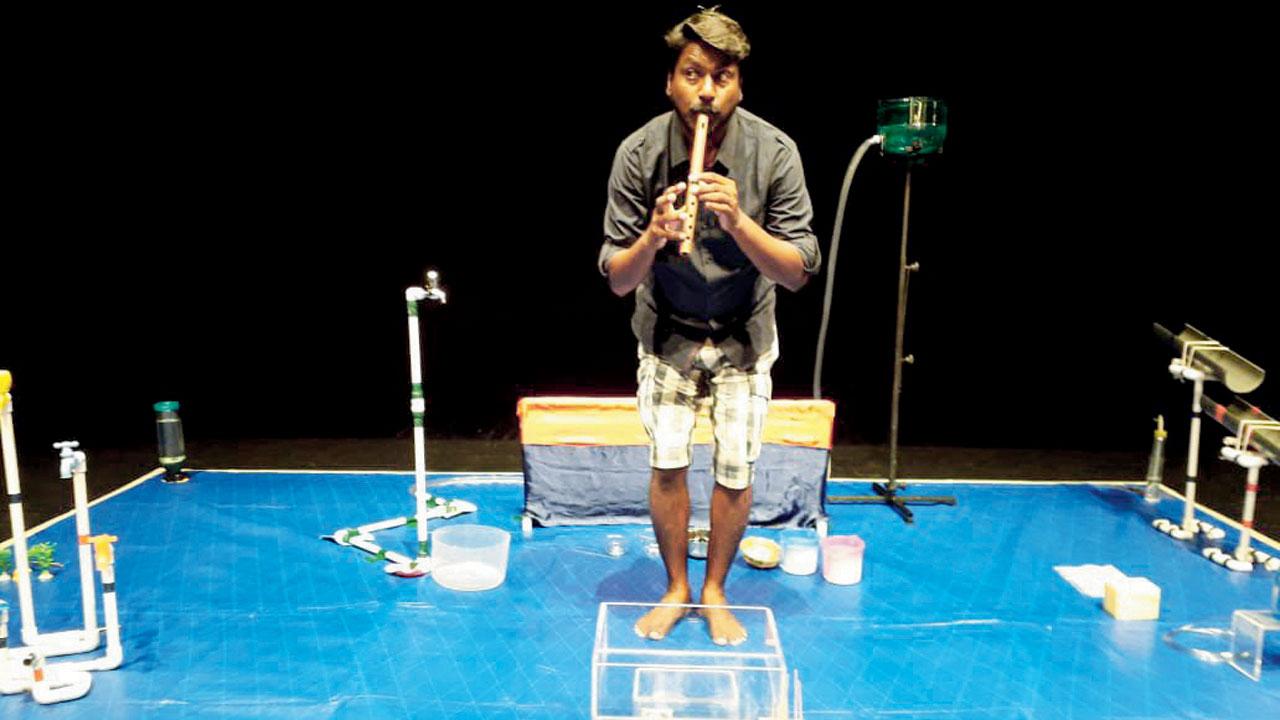
The artiste plays a tune on the flute to set the tone of a scene during a previous performance
The 46-year-old admits that getting the sounds right hasn’t been a breeze, especially in the absence of a team. We learn that over the last decade, Kawade has extensively researched and learned from repeated trials and errors both during shows, and in rehearsals back home. “I watched a video of percussionist Sivamani creating music with water bottles in a live performance sometime in the late 2000s. I was intrigued, and set out to recreate it,” he recalls. As he juggles between props tomorrow, pouring water through tubes, pipes, and bottles, Kawade’s learnings will come to fruition.
The music that arises from these experiments is accompanied by other embellishments such as a recurring mini flute. While the artiste admits he isn’t a trained flautist, he explains the intention, “I play a set of two notes that repeat in a progression to signify the absence of water; the sound mimics that of a hollow, parched well. On occasions where the protagonist finds water in one of the taps, I change the key of the progression to a brighter sound.”
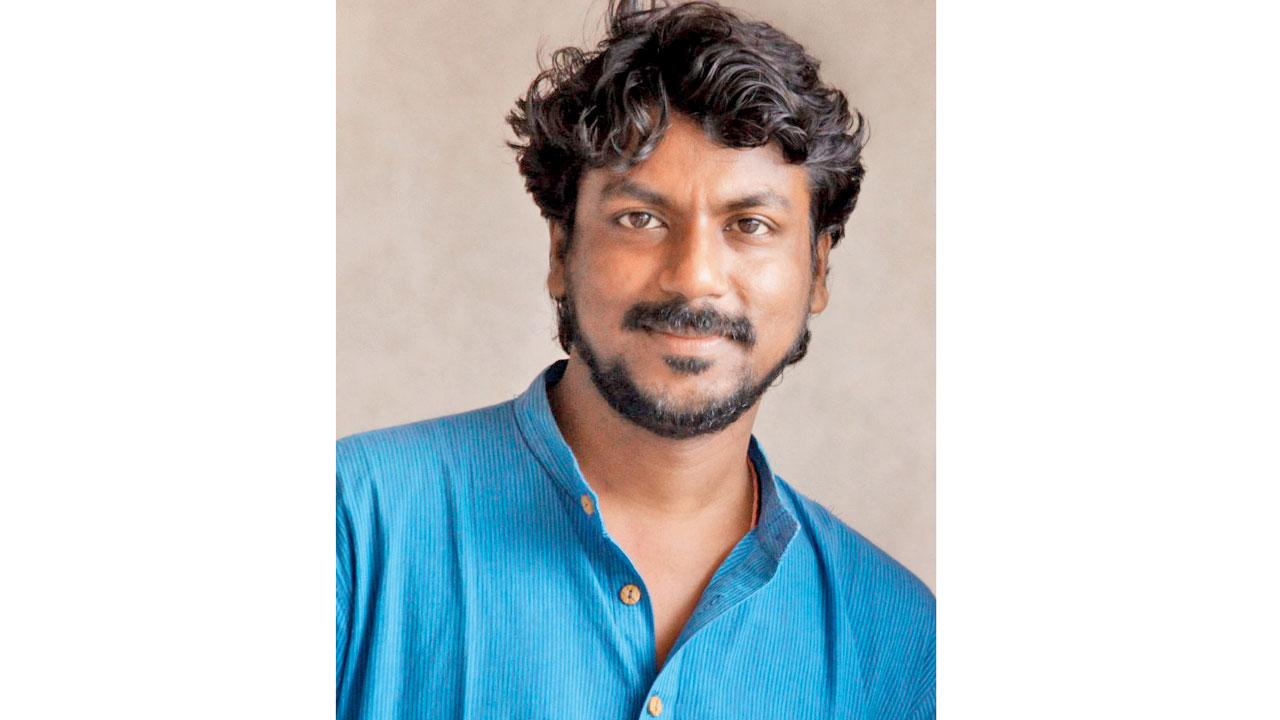
We learn that the stage is dotted by smaller contraptions that act as visual cues and complement the many isolated experiences the artiste will present. A glass tank filled with water and rubber ducks, for instance, symbolises the ponds in his hometown that Kawade grew up admiring. “These interpretations will differ between members of the audience; and that’s fine. This is precisely why I decided to take the non-verbal route with this play. The moment you declare the meaning explicitly, it is no longer personal for you or the audience,” he remarks.
At the end of Kawade’s 30-minute-long experiment fuelled by five litres of water tomorrow, the stage will be open for audiences to come and explore the setup. It is this closing act that will reveal the true source of the water Kawade uses, along with a take-home message for the audiences. “I want them to engage all their senses and interact with the set to feel one with the life-sustaining resource. Only when you feel a personal connection, will your eyes open to the way we mistreat the resource today,” Kawade signs off.
On: May 11; 7 pm
At: Prithvi Theatre, Juhu.
Log on to: in.bookmyshow.com
Entry: Rs 150 onwards
 Subscribe today by clicking the link and stay updated with the latest news!" Click here!
Subscribe today by clicking the link and stay updated with the latest news!" Click here!








